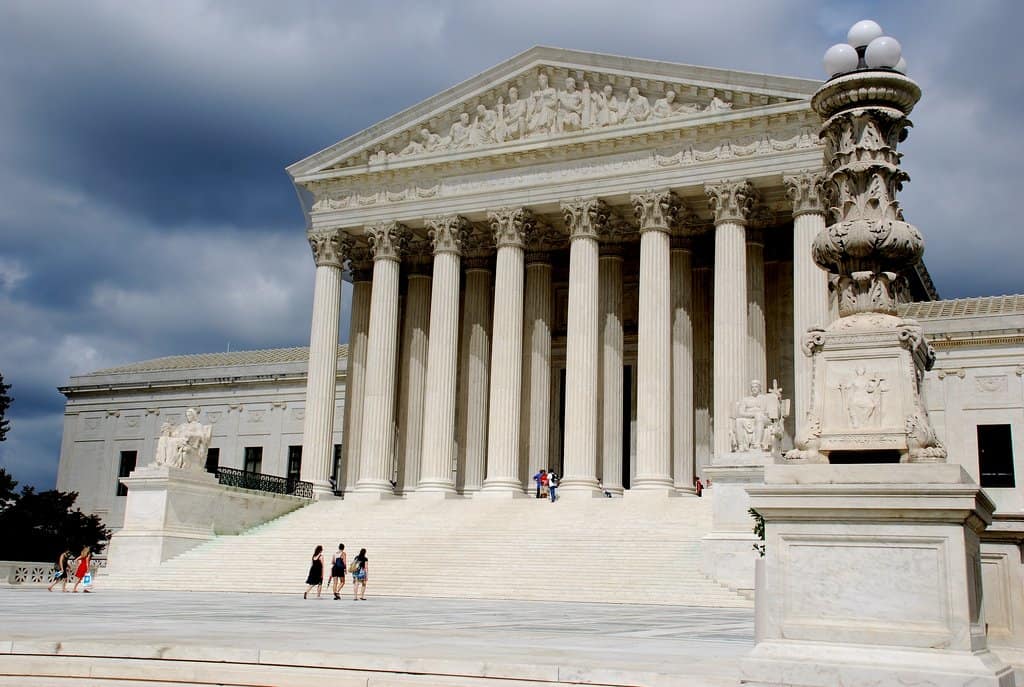
Benjamin Sachs is the Kestnbaum Professor of Labor and Industry at Harvard Law School and a leading expert in the field of labor law and labor relations. He is also faculty director of the Center for Labor and a Just Economy. Professor Sachs teaches courses in labor law, employment law, and law and social change, and his writing focuses on union organizing and unions in American politics. Prior to joining the Harvard faculty in 2008, Professor Sachs was the Joseph Goldstein Fellow at Yale Law School. From 2002-2006, he served as Assistant General Counsel of the Service Employees International Union (SEIU) in Washington, D.C. Professor Sachs graduated from Yale Law School in 1998, and served as a judicial law clerk to the Honorable Stephen Reinhardt of the United States Court of Appeals for the Ninth Circuit. His writing has appeared in the Harvard Law Review, the Yale Law Journal, the Columbia Law Review, the New York Times and elsewhere. Professor Sachs received the Yale Law School teaching award in 2007 and in 2013 received the Sacks-Freund Award for Teaching Excellence at Harvard Law School. He can be reached at [email protected].
Adrienne Spiegel is a student at Harvard Law School.
The Supreme Court’s opinion in New Prime Inc. v. Oliveira is rightly being heralded as a victory for workers. The Court, after all, has finally found a mandatory arbitration agreement that it won’t enforce. But it seems odd that this Supreme Court would hand workers a victory, particularly in the arbitration context. And we think there is reason to be worried about what the Court has done in New Prime.
The case raises the question of whether independent contractors in the transportation industry are covered by the Federal Arbitration Act’s mandate that courts enforce arbitration agreements. Section 1 of the FAA excludes from its coverage “contracts of employment of . . . workers engaged in . . . interstate commerce.” The respondent in New Prime, Dominic Oliveira, was an interstate truck driver, so there was no question whether he was “engaged in . . . interstate commerce.” The question was whether Oliveira’s contract with New Prime, which classified him as an independent contractor, was a “contract of employment” under section 1. New Prime claimed it was not, arguing that the term “contracts of employment” only includes contracts of workers classified as employees, not independent contractors. The Court rejected New Prime’s argument, finding that section 1’s exclusion applies to both employees and independent contractors who are engaged in interstate commerce.
The problem comes from the way the Court reached this decision. They did it by asking, exclusively, what the term “contracts of employment” meant when the FAA was passed. As Justice Gorsuch put it, “[t]he only question in this case concerns the meaning of the term ‘contracts of employment’ in 1925.” He expands:
It’s a fundamental canon of statutory construction that words generally should be interpreted as taking their ordinary meaning at the time Congress enacted the statute. After all, if judges could freely invest old statutory terms with new meanings, we would risk amending legislation outside the single, finely wrought and exhaustively considered, procedure the Constitution commands.
Thus the Court concludes that it is entirely irrelevant that “[t]o many lawyerly ears today, the term ‘contracts of employment’ might call to mind only agreements between employers and employees,” because “this modern intuition isn’t easily squared with evidence of the term’s meaning at the time of the Act’s adoption in 1925.” To figure out what the term meant when the Act was passed, the Court looks to dictionaries and cases written at that time. Modern meaning and policy arguments about what the FAA intends to accomplish are simply inapposite.
All of this means good things for Oliveira’s case, and for other workers in the transportation industry. But we worry about what a superficial extension of this mode of statutory interpretation might mean in other areas of employment law, particularly Title VII. That statute prohibits employers from discriminating against an employee “because of . . . sex.” Courts of appeals, and the EEOC, have read “because of sex” to encompass sexual orientation and gender identity and thus to hold that the statute prohibits discrimination on the basis of sexual orientation and gender identity. Almost all of these decisionmakers, moreover, have been guided by Justice Scalia’s opinion in Oncale, where the Court held that Title VII prohibits “male-on-male sexual harassment” even though, as Scalia put it, such harassment was “assuredly not the principal evil Congress was concerned with when it enacted Title VII.” For the Oncale Court, the key interpretive holding was that “statutory prohibitions often go beyond the principal evil to cover reasonably comparable evils.”
The Supreme Court, if it agrees to decide whether Title VII prohibits sexual orientation or gender identity discrimination, should follow Justice Scalia’s guidance in Oncale. If the Court, on the other hand, follows the lead of New Prime, there may be reason to worry. The New Prime question, after all, would be what the term “sex” meant in 1964, when Title VII was passed. And the answer to that question would be derived from dictionaries and cases written at that time. The risk is that the Court would find that “sex” in 1964 did not encompass either sexual orientation or gender identity. It might then conclude that because “sex” in 1964 did not encompass sexual orientation or gender identity, discrimination on the basis of those characteristics today is not discrimination “because of sex.”
This would be disastrous for equal rights at work. But it also would be a mistake, even under New Prime. First, As the EEOC and numerous courts of appeals have recognized (and as Katie R. Eyer outlines in a recent article), “because of” includes the idea of “but for” causation. And most cases of discrimination against a person because of their sexual orientation or gender identity would not have occurred but for their sex, even on a 1964 definition of sex. For example, a gay man who is fired for being in a relationship with another man was fired because of his sex. If he were a woman in a relationship with a man, he would not have been fired. He would not have faced discrimination but for his sex, even on a 1964 definition. Similarly, an employee assigned the sex of male at birth and who faces discrimination for identifying as female today would not have faced discrimination but for her sex, even on a 1964 definition. Had she been assigned the sex of female at birth there would be no adverse treatment.
Second, as the EEOC has emphasized, the concepts of sexual orientation and gender identity simply cannot be understood without reference to sex – again, even a 1964 definition of sex. Discrimination because of sexual orientation or gender identity is necessarily sex discrimination. Thus, even a bisexual female employee who is discriminated against for being bisexual would be protected by Title VII under New Prime’s approach. Such a case seems to defy the but-for approach: after all, even if she were a man, she would have been discriminated against for being bisexual. Yet the very notion of discrimination because of bisexuality is only coherent by referencing plain old sex, no matter the year. Thus, while a principled application of New Prime’s reasoning to the Title VII cases would lead to the same result that Oncale counsels, the risk of a misapplication leading to a perverse result is concerning. Indeed, it is likely a concern of this sort that led Justice Ginsburg to concur in New Prime. She reminds the Court that Congress designs legislation “to govern changing times and circumstances” and that “words in statutes can enlarge or contract their scope as other changes, in law or in the world, require their application to new instances or make old applications anachronistic.”










Daily News & Commentary
Start your day with our roundup of the latest labor developments. See all
January 30
Multiple unions endorse a national general strike, and tech companies spend millions on ad campaigns for data centers.
January 29
Texas pauses H-1B hiring; NLRB General Counsel announces new procedures and priorities; Fourth Circuit rejects a teacher's challenge to pronoun policies.
January 28
Over 15,000 New York City nurses continue to strike with support from Mayor Mamdani; a judge grants a preliminary injunction that prevents DHS from ending family reunification parole programs for thousands of family members of U.S. citizens and green-card holders; and decisions in SDNY address whether employees may receive accommodations for telework due to potential exposure to COVID-19 when essential functions cannot be completed at home.
January 27
NYC's new delivery-app tipping law takes effect; 31,000 Kaiser Permanente nurses and healthcare workers go on strike; the NJ Appellate Division revives Atlantic City casino workers’ lawsuit challenging the state’s casino smoking exemption.
January 26
Unions mourn Alex Pretti, EEOC concentrates power, courts decide reach of EFAA.
January 25
Uber and Lyft face class actions against “women preference” matching, Virginia home healthcare workers push for a collective bargaining bill, and the NLRB launches a new intake protocol.